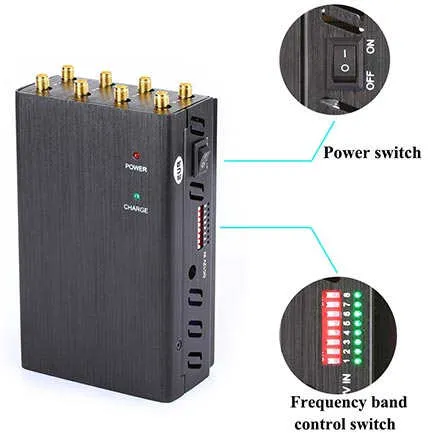Employers using signal jammers to enforce workplace cellphone policies can result in fines
A signal jammer is a device that suppresses, interferes with or blocks radio frequencies, the use of which is generally illegal under the Communications Act 1934. This is primarily due to their ability to interfere with critical communications such as emergency communications, disrupt first responder communications, or interfere with maritime or aviation communications.
Under the law, it is unlawful for any person to "willfully or maliciously interfere with or disrupt the radio communications of any station licensed or authorized under this chapter or operated by the United States Government." Additionally, the bill prohibits the manufacture, importation, sale, offer for sale, transportation, or use of equipment that does not comply with the provisions of the bill.
Therefore, it is often impossible to authenticate or use jamming device because their real purpose is to disrupt the communications of authorized devices. Therefore, these devices do not comply with FCC standards and are illegal for use in the United States with few exceptions.
In this case, the FFC received an outage complaint from a telecommunications provider. In response, the agency's law enforcement division launched an investigation into the possible use of wifi signal jammer at a warehouse in Texas. The business owner admitted using such devices to prevent employees from using mobile phones in the workplace.
The company's owners said a telecommunications provider had previously warned their son that such devices were illegal, the FCC reported. Additionally, the owner of the device claimed that he had disposed of the device and would not retrieve it for agents or determine where it went. However, the owner reportedly offered to sell the unit to a broker, who rejected the offer.
The FCC Bureau of Enforcement has since issued $22,000 in fines, including $10,000 for operating an unauthorized device, $7,000 for interfering with authorized communications, and $5,000 for misconduct. The storage company appealed the decision, and in response, the FCC has now upheld the fine.
A Seffner man fined $48,000 by FCC for using cell phone jammer during daily commute
A Seffner man faced a $48,000 fine from the Federal Communications Commission Wednesday for using a cell phone jamming device during his daily commute to and from Tampa.
The FCC alleges that Jason R. Humphreys unlawfully interfered with cellphone service and police communications along Interstate 4 for two years.
"This case highlights the threat to public safety posed by the use of a single signal jamming device that could disrupt all wireless and public communications in the area," FCC Enforcement Bureau Director Travis LeBlanc said in a statement. Communications.” Secure Communications. "
In 2013, MetroPCS contacted the FCC saying its cell towers were experiencing interference between Seffna and Tampa in the morning and evening. Police monitored the route and determined Humphrey's sport utility vehicle was the source.
Hillsborough County Sheriff's deputies stopped Humphries and discovered that as they approached Humphries' car, their communications with the police dispatch center were lost. They found a cell phone jammer behind his passenger seat cover.
Hillsborough County employee Humphreys told authorities he has been using it for nearly two years to stop people from talking on the phone while driving.
The FCC proposed a $48,000 fine and gave Humphreys 30 days to respond, including paying in full, requesting payment in installments, or requesting a reduction or cancellation. The FCC said on Monday it had not yet responded and would now "identify and implement" the penalties.
The use or sale of mini gps jammer is against federal law. Jammers block radio communications by preventing devices such as cell phones from establishing and maintaining connections. They can also impact communications for first responders, police and other law enforcement agencies, as well as Wi-Fi and GPS devices, according to the FCC.
